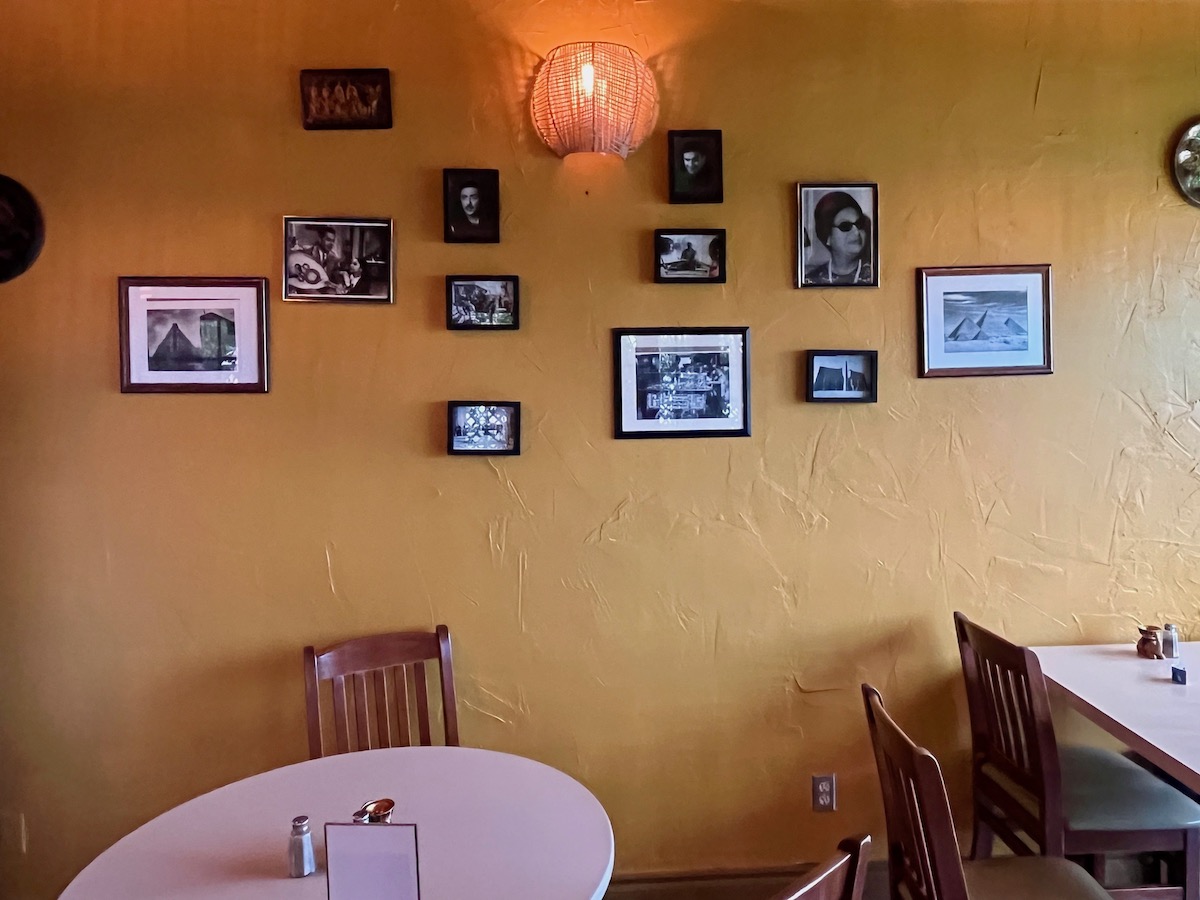The walls at Pharaoh’s are painted in a warm yellow wash — the kind common in Egyptian homes — and decorated with a mix of vintage Egyptian pop star portraits, pharaoh figurines and King Tut kitsch. It’s nostalgic and a little theatrical, a fitting welcome to Edmonton’s only Egyptian restaurant.
When I asked owner Catherine Abdelnour for recommendations, she first pointed me toward the Greek options, a nod to Alexandria’s coastal culinary influences. But I wanted to try something traditionally Egyptian. Her next suggestion was koshari, the country’s national dish — a street food staple made from lentils, rice, chickpeas and macaroni noodles, topped with tomato sauce and fried onions. I’ve had it before in Egypt, and while I appreciate its history and how deeply loved it is, it’s just not for me — too dense, too heavy on the carbs.
So instead, I started with a side of falafel (or ta’ameya, as it’s called outside of Alexandria) made from fava beans instead of chickpeas. The result was light and aromatic, with a fluffy interior and a crisp sesame sprinkled crust. It came with a cumin-spiced tahini sauce that was thinner than I’m used to and perfect for dipping.
For my main, I ordered hawawshi, a spiced meat mixture stuffed inside an oiled pita bread and grilled until the outside was crisp. It’s often compared to the Levantine flatbread lahm bi ajeen, but meatier and without the tomato base. To me though, the crunchy shell and simple stuffing made it closer to a gordita.
It’s usually served with fries and tahini dip, but I wanted just one more taste of Egypt, so I asked for a side of molokhia, a dark green stew made from finely minced jute leaves simmered in lamb and beef broth. It looks and behaves like a soup until spooning the garlicky, savoury sauce over the sticky, buttery rice it’s served with.
Though I was full, I couldn’t leave without trying Omm Ali, a warm bread pudding made from puff pastry soaked in cream, topped with shredded coconut and toasted almonds. Abdelnour shared the story behind the name, which translates to “Mother of Ali” — not a tribute to domestic sweetness, but, in fact, a tale of murderous revenge. According to legend, Omm Ali created the dish to celebrate the death of a rival wife. Whatever Omm Ali’s crimes, she deserves a full pardon and maybe a national holiday for her delicious invention.
